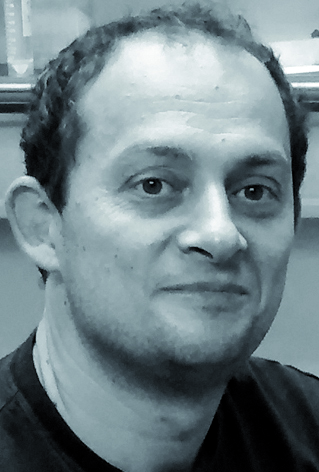Raúl Estévez studied Biochemistry (1994) at the University of Barcelona, where he also obtained his PhD in Biochemistry (2000, under the supervision of Dr. Manuel Palacín), finishing both studies with extraordinary honours. He also possesses an Interuniversitary Master of Business and Administration from 1999. Following three years of postdoctoral research at the Center for Molecular Neurobiology under the supervision of Dr. Thomas Jenstch and four years as a Ramón y Cajal researcher, he started to work at the University of Barcelona as Professor of Physiology in the Faculty of Medicine in 2007. Dr. Estévez is member of CIBERER. His research is now focused on rare genetic diseases related to movement of chloride across membranes.

Raúl Estévez
ICREA Academia 2009 & 2014
Universitat de Barcelona (UB) · Life & Medical Sciences

Research interests
Chloride is the most abundant anion in organisms. Plasma membrane chloride channels from the CLC and LRRC8 family are important for several physiological functions such as regulation of excitability in nerve cells and muscle, for cell volume regulation as well as for transepithelial transport. The physiological roles of several chloride channels are illustrated by human inherited diseases caused by mutations in their genes or in auxiliary subunits that regulate their functions. Thus, defects in CLC and LRRC8 proteins have been related with hyper excitability of skeletal muscle, salt loss in the kidney and deafness (Bartter’s syndrome), leukodystrophy (myelin alteration) with edema in the white matter or agammaglobulinemia. Our aim is try to understand chloride channel regulation in order to provide therapeutical solutions to affected patients. We use a multidisciplinary approach by applying imaging, electrophysiology and biochemistry methods.
Keywords
Myelin, Cell volume, ion channels, membrane proteins, astrocyte